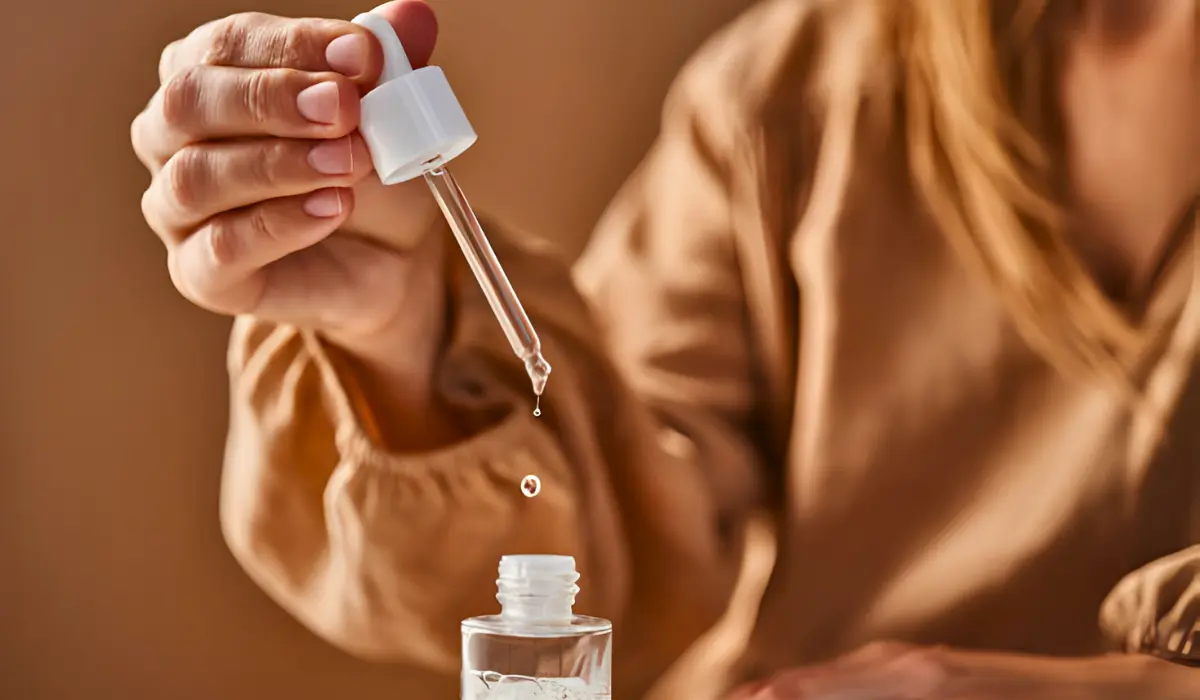If you are conscious about your skincare routine, then you might have heard about Hyaluronic acid. In recent times, it has been used in various skincare products due to the properties that claim to promote healthy skin. According to recent research, the substance is beneficial for oily skin and even acne. At the same time, many people have also claimed that this organic substance tends to cause acne.
But the question here arises; does it really impact the skin and cause acne? So, let’s find out the facts about hyaluronic acid while understanding its side effects.
Understanding Hyaluronic Acid And Its Side Effects
Before exploring its side effects, it is essential to understand the meaning of hyaluronic acid. In other words, it is also known as hyaluronan or hyaluronate, is a naturally occurring substance present in connective tissues and the skin of the body. It helps to regulate oil production in the body and helps to improve the overall texture of the skin.

Due to its lightweight and non-greasy properties, this substance is used as the key ingredient in various skincare products as well. It helps to fight against the signs of aging, heal wounds, and even get relief from joint pain. Besides these benefits, hyaluronan may also promote some side effects that we have discussed below.
Potential Side Effects Of Hyaluronic Acid
As being a naturally occurring substance, the side effects of hyaluronic acid are rare. Still, people who have allergic problems are more prone to experience etching swelling and even face difficulties in breathing. Additionally, a product that contains hyaluronate is not recommended for pregnant women.
Here, you have to note that this naturally occurring substance does not cause any side effects by itself. Instead, a person may face an excessive amount due to the products that contain it as a key ingredient. You can explore the points below to understand its potential side effects and use the product in a better way.
- When it comes to skincare routines, some people have complained that they have experienced skin irritations like itching and redness after using hyaluronic acid products.
- Furthermore, the products containing hyaluronan have also caused mild headaches in some individuals.
- To some extent, hyaluronate-containing products may also cause allergic issues like swelling of the face or tongue, hives, and breathing problems.
The good news is this substance does not cause any serious health issues, and that too, impacts when you use the hyaluronan skincare products rather than directly. Additionally, it is recommended to stop using immediately when you face any skin-related issues and consult a doctor. But the real question still remains: Does hyaluronic acid cause acne, or is it just a myth?
Does Hyaluronate Cause Acne In The Face? If Yes, Then How?
Well, speaking honestly, hyaluronic acid is not known to cause acne on the face or other skin-related issues. In fact, studies have found that this substance provides moisture to the skin, which can help reduce dryness. In addition, hyaluronic is a non-greasy substance that helps treat oily skin while reducing the risk of acne.
As we have discussed earlier, it is a skin product that contains an excessive amount of hyaluronan, which may cause pimples. These products promote excessive moisture to the skin, which increases the bacteria and affects your skin. That can be resolved by discontinuing the product and consulting with a dermatologist.
Hyaluronic Acid And Other Products: How Do They Interact?
As you have well understood, the naturally occurring hyaluronic acid does not cause any side effects to the skin. It is the skincare or other products that contain hyaluronan as an ingredient in an excessive amount. But have you ever thought about how it interacts with other products and causes problems to the skin?
The research has found that hyaluronic acid may have some risk factors, which it is combined with some medications. It generally affects during pregnancy or while breastfeeding who consume hyaluronan-containing supplements. Additionally, it may also reduce the efficiency of allergic medications and trigger the causing effects.
Therefore, it is recommended to consult a doctor before using the hyaluronate product in your daily life. They may suggest better use of such products to the people who are already using the prescribed medicines, receiving treatment, or have chronic health issues. In addition, if you observe any type of irritation to your skin by using such a product, immediately stop it.
Tips To Avoid Skin Issues While Using Hyaluronic Acid
As hyaluronic acid is naturally found in the body, you don’t need to opt for any additional supplement to fulfill your needs. Still, if your body produces this acid in less amount per the requirement, then you can consider using the hyaluronan-content product. In this regard, you can follow the precautionary steps to avoid side effects that can potentially cause skin-related issues.
- Choose a product that has a smaller alcohol content to avoid dryness and cracks in your skin.
- Have a patch test before using any new product to observe any diverse reactions to your skin.
- Clean your skin properly with your favorite cleanser before applying hyaluronic acid products.
- Always consider applying it before implementing any heavy cream or oil on your skin.
- Make sure to use sunscreen during the day if you are using hyaluronic acid to maintain moisture.
- Avoid using too much hyaluronan in your face as it may cause acne.
Final Words
Hence, hyaluronic acid does not cause any issues to the skin unless you are taking it in the required amount. However, it may cause skin problems like acne and itching only if you have allergies or are taking any prescribed medicines. Additionally, it can also cause some mild health issues during pregnancy if an individual is taking any hyaluronan supplement.
In such cases, you can consult your doctor for better suggestions before implementing any new supplement in your daily life. Even when choosing any skincare products, check the alcohol content and implement a patch test to observe any diverse reactions to your skin.

